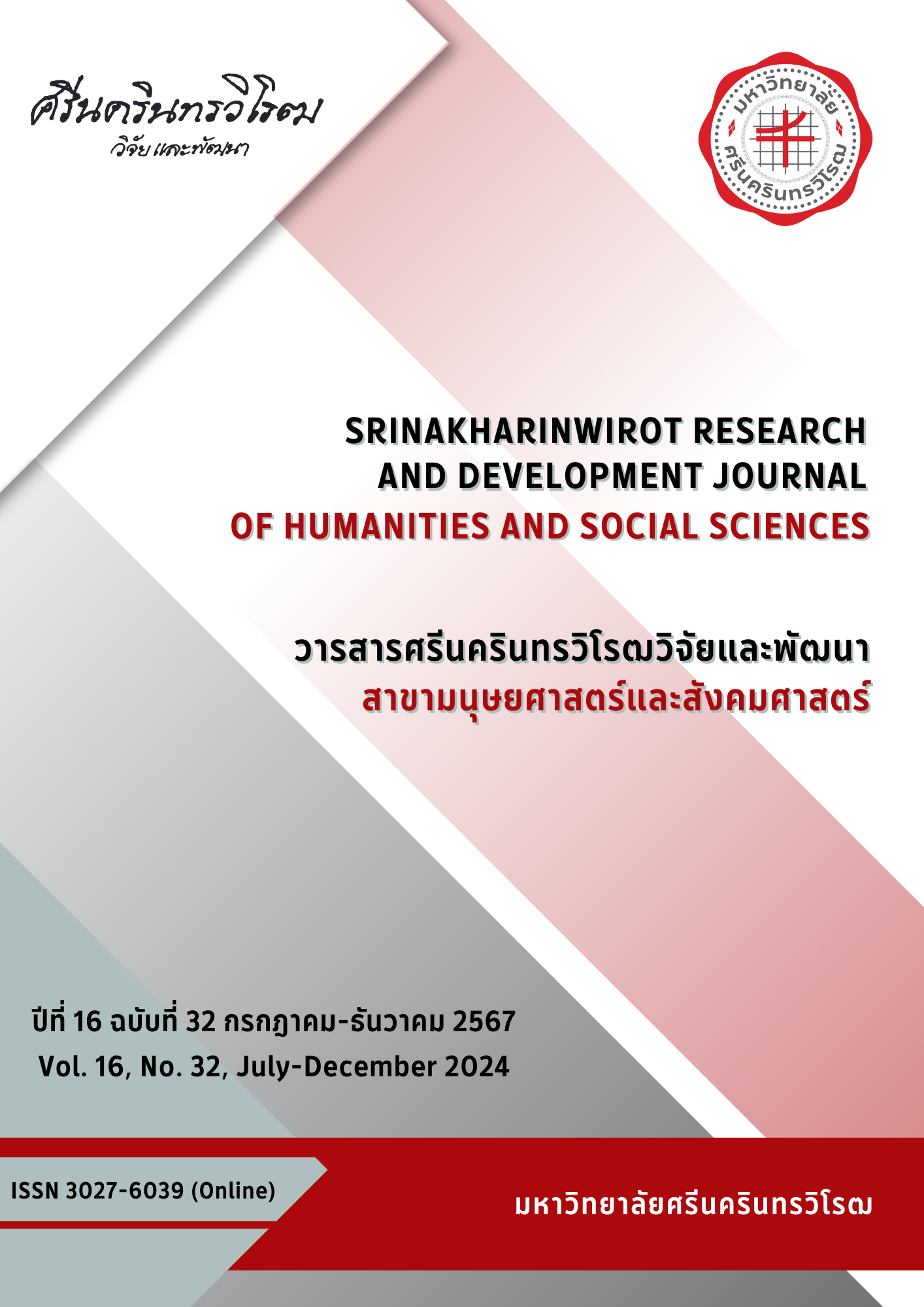ATTITUDE OF CLINICAL MEDICAL STUDENTS IN FAMILY MEDICINE PRACTICE
Keywords:
Family Medicine Course, Attitude, Clinical Medical StudentsAbstract
Family medicine is one of the courses provided in Thailand's doctor of medical program. Based on the setting of each institution, learning management system improvements vary and continuously. There were some challenges, particularly the students’ attitude. The aim of this study was to compare attitude of clinical medical students in family medicine practice course. This was a prospective comparative study. In the second semester of the academic year 2022, a questionnaire was administered to fifth-year clinical medical students of Srinakarinwirot University before and after they attended a family medicine practice course. The questionnaire's content validity was confirmed, with an Index of item objective congruence (IOC) value of between 0.50 and 1.00 and an approval quality. Reliability using Cronbach's alpha coefficient formula is 0.72. The data were analyzed by descriptive statistical method with frequency, percentage, mean, standard deviation, maximum, minimum and analytic statistical method with Paired simple T-test. 78 respondents (90.69%) answered the questionnaire. The findings demonstrated that following the study period, student attitude scores were significantly increased (p-value 0.002). Each aspect was studied, as it showed that getting a positive attitude in all questions, there was a significant change between the before and after sessions (p-value < 0.05). Changes in negative attitude before and after sessions. But for all questions, there was no statistically significant (p-value>0.05). It demonstrates after studying family medicine practice of the medical students, there were higher self-assessed scores in attitude.
Downloads
References
Chitrpitaklert, S., Hathirat, S., Thongwilai, P., Supapol, S., Noknoy, S., Tavethipong, O., and Srivanichakorn, S. (2010). Knowledge management in family medicine: From experience to expertise. Nakorn Pathom: Office of Community Based Health Care Research and Development.
Kheawcha-um, P. (2012). Attitude. https://www.gotoknow.org/posts/280647
Atthmana, S. T. (1998). Organization behavior: Theory and applications. Thammasat University Press: Bangkok.
Surakitboraworn, S. (1999). Social psychology: Theories and applications. Bangkok: Suweeriyasan.
Anderson, L. W., Krathwohl, D. R., Airasian, P. W., Cruikshank, K. A., Mayer, R. E., Pintrich, P. R., Raths, J., and Wittrock, M. C. (2001). A taxonomy for learning, teaching, and assessing: A revision of bloom's taxonomy of educational objectives. New York: Pearson, Allyn & Bacon.
Kongsomboon, K. (2019). Textbook of epidemiological research (Vol. 2). Bangkok: Chulalongkorn University Printing House.
Pitanupong, J., and Kanapikkhu, S. (2014). Psychiatry and self-assessment of the development of knowledge, attitude and self-awareness in sixth year medical students, prince of songkla university. Songkla Medical Journal, 32(6), 383-391.
Kamlungkuea, T., Kositkuljorn, C., and Sukhato, K. (2018). Medical students’ perceptions of ward rounds in the undergraduate medical curriculum. Ramathibodi Medical Journal, 41(1), 48-57.
Hongliam, N., Odompet, P., and Poomjan, P. (2015). The study of attitude of pre-clinical medical students to teaching and learning in doctor of medicine program, faculty of medicine siriraj hospital. Siriraj Medical Bulletin, 8(1), 10-18.
Sripa, P. (2019). Direction of family physicians towards thai health care system. Journal of Health Science, 28(1), 176-184.
Wilaem, W., and Wongwaen, W. (2019). Factors that influence the achievements of preclinical medical students at Thammasat University. Thammasat Medical Journal, 19, 155-163.
Uwanno, T. (1985). Measuring attitude: Problems in using, problems in using to predict behavior. Journal of Education Studies, 14, 133-160.
Dornan, T., Mann, K., Scherpbier, A., and Spencer, J. (2011). Medical education: Theory and practice. China: Elsevier.
The University of Queensland. (2023). Reflective learning. Retrieved August 11, 2023, from https://itali.uq.edu.au/teaching-guidance/teaching-practices/active-learning/reflective-learning
Asiri, A. (2020). Experiential learning theory. Retrieved August 11, 2023, from https://opentext.wsu.edu/theoreticalmodelsforteachingandresearch/chapter/experiential-learning-theory/
The Mind Tools Content Team. (2023). The learning zone model. Retrieved August 11, 2023, from https://www.mindtools.com/a0bop9z/the-learning-zone-model
Downloads
Published
How to Cite
Issue
Section
License
Copyright (c) 2024 Srinakharinwirot Research and Development Journal of Humanities and Social Sciences

This work is licensed under a Creative Commons Attribution-NonCommercial-NoDerivatives 4.0 International License.
Srinakharinwirot Research and Development Journal of Humanities and Social Sciences is licensed Under a Creative Commons Attribution-NonCommercial-NoDerivs 4.0 International (CC-BY-NC-ND 4.0) License, Unless Otherwise Stated. Please Read Journal Policies Page for More Information on Open Access, Copyright and Permissions.



